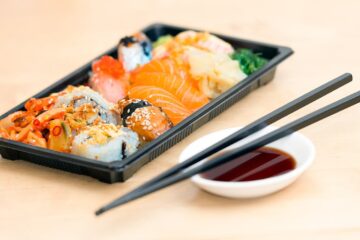Key Takeaways
- Both French and Asian bakeries are seeing a surge in franchising opportunities globally.
- Cultural appreciation and fusion cuisine are driving factors behind this trend.
- The rise of artisanal baking and unique customer experiences contribute to the popularity of these bakeries.
The Global Appeal of French and Asian Bakeries
French and Asian bakeries offer a unique blend of culture and flavors that have captured the hearts and palates of people worldwide. These bakeries’ distinct techniques and ingredients are key factors in their growing popularity. Traditional French pastries like croissants, baguettes, and macarons are beloved for their delicate and precise preparation methods, which often involve years of practice to perfect. Similarly, Asian bakeries introduce unique items such as mochi, bao buns, and matcha-flavored treats, bringing an exotic and delightful twist to conventional baked goods.
These bakeries have found a welcoming audience in places like California, where diverse culinary traditions converge. Take, for example, California bakery that has embraced this blend of cultures and flavors. Combining traditional techniques and innovative flavors creates a rich tapestry of culinary choices that attracts a wide range of customers, making these bakeries a staple in the local food scene. Their popularity is also boosted by the multicultural population in metropolitan areas, where food is more than just sustenance—it explores heritage and innovation.
Cultural Appreciation and Fusion Cuisine
There’s been a significant rise in cultural appreciation and the love for fusion cuisine. More people are becoming adventurous with their taste buds, seeking new and exciting food experiences. French and Asian bakeries perfectly cater to this demand by offering a variety of innovative and traditional treats. Fusion cuisine allows for surprising and delightful combinations, such as matcha croissants or sushi-inspired sandwiches, pushing traditional bakery fare boundaries. These fusion creations offer unique flavors and tell a story of cultural crossover and culinary evolution.
For example, the rise of Cronuts represents a fusion of American and French pastry traditions, creating a sensation that has driven more interest in such bakeries. This blend of flavors and techniques brings something new and pays homage to each culture’s rich culinary heritage. The popularity of fusion cuisine also speaks to a broader trend of globalization in food, where barriers are broken down, and culinary traditions from different parts of the world come together.
The Rise of Artisanal Baking
The artisan baking movement has also played a significant role in the franchising frenzy. Consumers increasingly prefer high-quality, hand-crafted baked goods over mass-produced items. This preference has created a thriving market for artisanal French and Asian bakeries. These establishments pride themselves on using high-quality ingredients, traditional baking methods, and a touch of creativity, which resonate deeply with today’s discerning food enthusiasts. Artisanal bakeries are also more likely to source local and organic ingredients, aligning with the growing consumer preference for sustainability and transparency in food production.
Artisanal baking is not just about the end product but also about the process. Bakers invest significant time and effort into perfecting their crafts, often learning techniques passed down through generations. This dedication to craftsmanship and quality sets artisanal bakeries apart from their mass-market counterparts. Moreover, the artistry involved in creating these baked goods often results in visually stunning products that are as pleasing to the eye as they are to the palate, adding an element of artistry and pride to the culinary experience.
Creating Unique Customer Experiences
One aspect that sets French and Asian bakeries apart is their ability to provide unique customer experiences. These establishments often incorporate cultural heritage elements into the ambiance and menu offerings, creating an immersive and memorable experience for customers. Every detail, from the decor to the packaging, is meticulously designed to reflect the bakery’s cultural roots; visiting these bakeries is more than just a culinary experience but a cultural journey. This immersive experience fosters a deeper connection with customers, making them more likely to return and share their experiences with others.
An excellent example is the success of Japanese pastry chefs in various parts of the world, who blend meticulous technique with innovative design to create a distinctly Japanese sensory experience. Whether it’s precision in presenting a delicate matcha cake or the intricate layers of a mille-feuille, these unique experiences make customers more likely to return. This sensory experience is further enhanced by the use of high-quality ingredients and artistic presentation, making each visit a feast for the eyes and the taste buds.
Economic Opportunities in Franchising
The franchising model offers a viable path for aspiring entrepreneurs to join the bakery business. For franchisees, it provides access to an established brand, a proven business model, and continuous support, reducing the risk associated with starting a new business from scratch. These benefits make franchising attractive for those looking to tap into the growing demand for high-quality, culturally rich baked goods. Additionally, franchising allows business owners to benefit from a larger entity’s collective brand power and marketing efforts, providing a competitive edge in a crowded market.
Franchise owners can leverage brand recognition and customer loyalty built by the parent company, making attracting and retaining customers easier. Moreover, ongoing support in training, marketing, and operations ensures that franchisees can maintain the high standards set by the brand while focusing on delivering delightful customer experiences. This support system is crucial for new entrepreneurs who may lack experience in the bakery industry but are passionate about bringing high-quality, culturally rich baked goods to their communities.
Challenges and Considerations
While franchising French and Asian bakeries is promising, it’s not without challenges. Potential franchisees must address key considerations such as consistency in quality, maintaining cultural authenticity, and adapting to local markets. Ensuring that each franchise location delivers the same quality and cultural authenticity level as the original stores can be challenging, particularly when expanding into regions with varied consumer preferences. This requires a robust training program and stringent quality control measures to ensure that every product meets the brand’s high standards.
Potential franchisees must invest in comprehensive training programs and robust operational systems to ensure uniformity across all locations. Additionally, understanding and adapting to local market needs while preserving the brand’s essence can be a delicate balance. Markets in different regions may have unique preferences and dietary requirements, and franchises must navigate these variations while staying true to their brand identity. Nonetheless, overcoming these challenges can lead to sustainable growth and a loyal customer base, as the successful adaptation often wins over local customers.
Conclusion
The franchising frenzy of French and Asian bakeries is a testament to the growing appreciation for high-quality, culturally rich foods and unique customer experiences. As more consumers seek out new culinary adventures, the future looks promising for these diverse and delightful bakeries. With their distinctive blend of tradition and innovation, French and Asian bakeries are well-positioned to continue riding the sweet wave of success. As these bakeries expand through franchising, they will continue to bring unique flavors and experiences to new markets, enriching the global culinary landscape.




